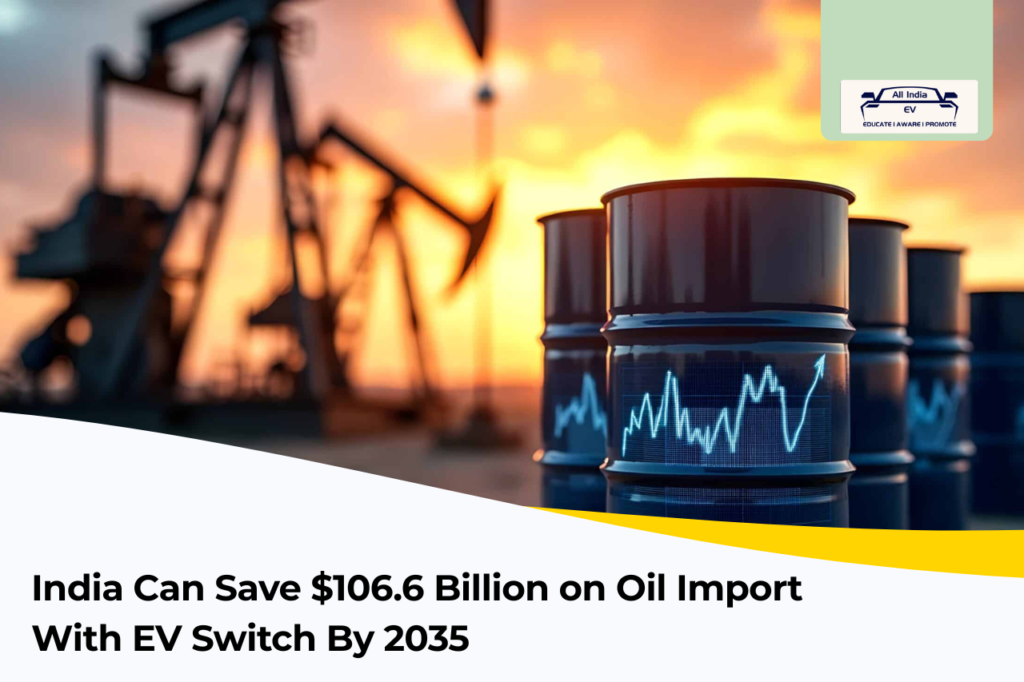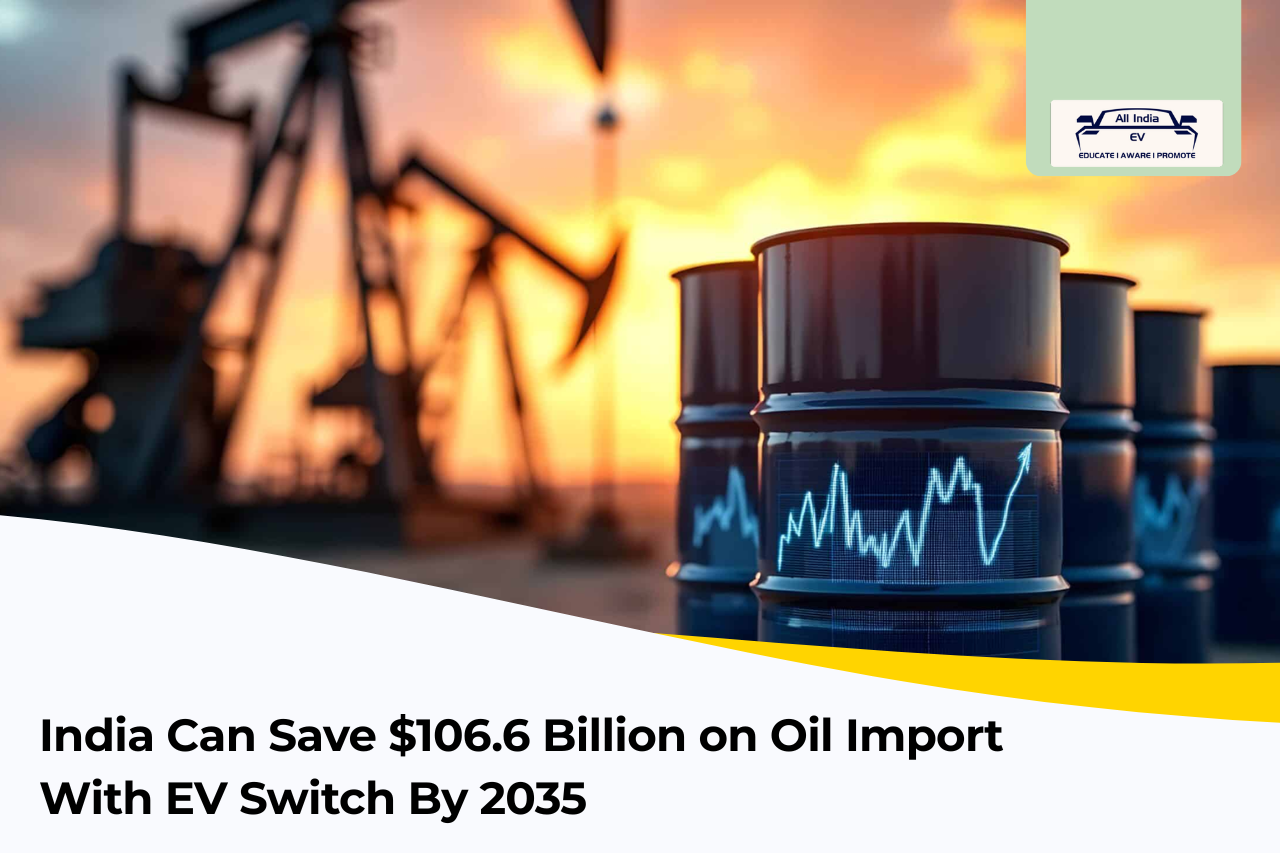
India Can Save $106.6B by 2035 with EV Switch: TERI Study Highlights Sustainable Future in Transport Sector Pathways
A new study by The Energy and Resources Institute (TERI) reveals that transitioning from fossil fuel-powered vehicles to electric vehicles (EVs) in India’s major cities could save the country a staggering USD 106.6 billion (₹9.07 lakh crore) in oil imports by 2035. The report highlights not only the economic benefits but also significant environmental gains, including a sharp reduction in air pollution and carbon emissions.
Focusing on 44 Indian cities with populations exceeding 10 lakh, TERI estimates that switching to EVs could help avoid 11.5 tonnes of harmful PM2.5 emissions daily by 2035. This translates to a cut of 61 million tonnes of carbon dioxide equivalent in greenhouse gases, marking a major step toward cleaner urban air and climate mitigation.
✅ Alarming Rise in Older, Polluting Vehicles
The study warns of a growing fleet of older, polluting vehicles, expected to increase from 49 lakh in 2024 to 75 lakh by 2030 if no intervention is made. These aging vehicles, particularly diesel buses, are responsible for elevated pollution levels in cities—especially during winters when transport contributes up to 37% of PM2.5 and 24% of PM10 air pollutants.
TERI’s findings indicate that older diesel buses are the largest polluters on Indian roads, and implementing age restrictions and scrappage policies could reduce PM2.5 emissions by 50% and nitrogen oxide emissions by 80% by 2030.
✅ Phased Vehicle Replacement for Cleaner Air
TERI advocates a phased removal of approximately 1.14 crore old vehicles between 2030 and 2035, replacing them with electric or a combination of electric and CNG vehicles. This shift is projected to cut greenhouse gas emissions substantially and improve urban air quality.
The transition will also spur economic growth by generating over 3.7 lakh new jobs in the renewable energy and EV sectors, according to the report.
✅ Infrastructure Needs and Job Creation
To support this massive transition, India will need to develop a robust EV charging infrastructure. TERI estimates the installation of 45,000 public EV charging stations and 130 vehicle scrapping centers across the 44 cities. If half of the old vehicles are converted to CNG instead, the country would require about 2,655 new CNG refueling stations, although job creation would then reduce to around 45,000.
✅ Looking Ahead
This comprehensive study, published in April 2025, underscores the importance of swift policy action and infrastructure development to unlock India’s EV potential. The findings provide a clear roadmap for cleaner, healthier cities, significant fuel savings, and a stronger green economy.










